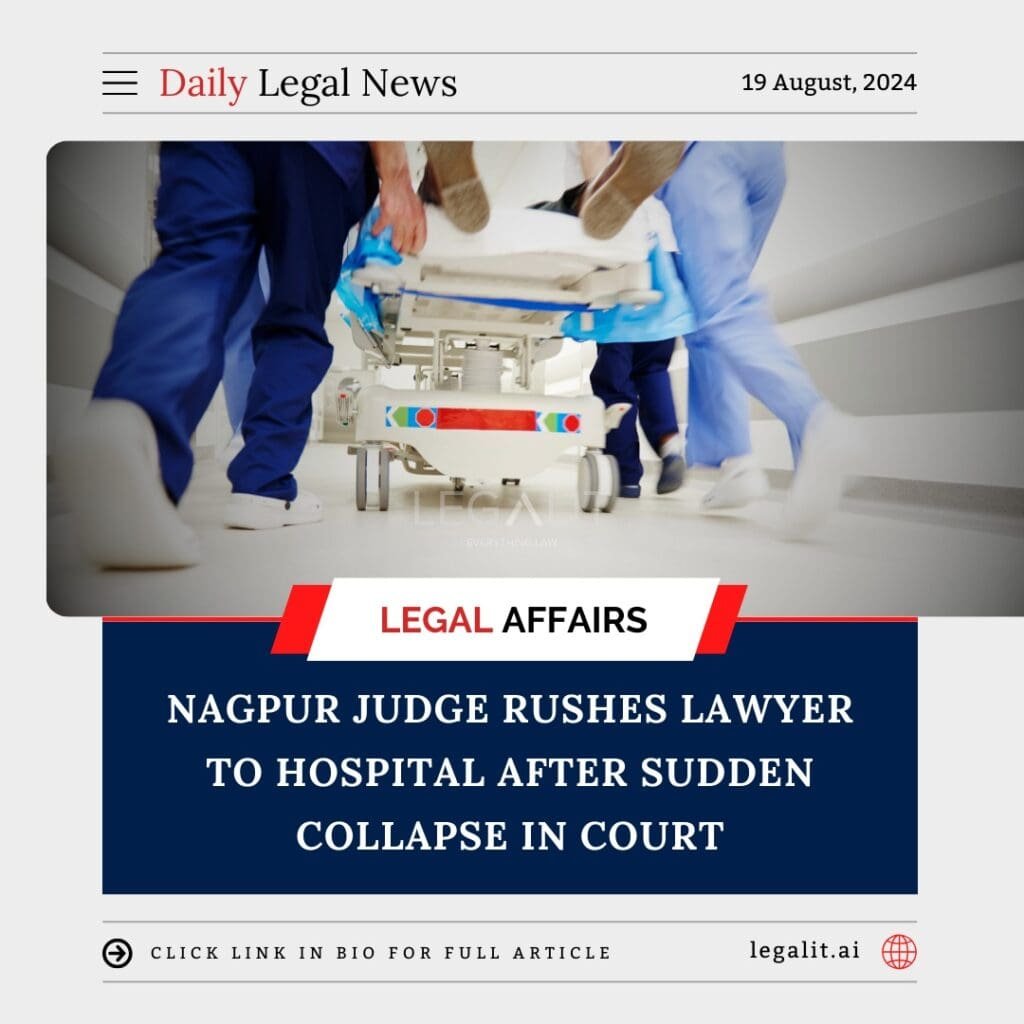
In a commendable act of quick thinking and compassion, a judge in Nagpur recently took swift action to rush a lawyer to the hospital after the latter collapsed in the courtroom. The incident underscores the importance of readiness and humanity within the judiciary, highlighting the critical role judges and court staff play in ensuring the well-being of everyone present in the court, not just in matters of law, but also in emergencies.
Details of the Incident
During a regular court session in Nagpur, a lawyer unexpectedly collapsed while addressing the court. The suddenness of the incident caused immediate concern among those present, as it was clear that the lawyer required urgent medical attention. Recognizing the gravity of the situation, the presiding judge immediately ordered that the lawyer be taken to the nearest hospital without delay.
The judge’s prompt response was crucial in ensuring that the lawyer received the necessary medical care in a timely manner. Reports suggest that court staff and others in the courtroom assisted in the effort, reflecting a collective commitment to ensuring the safety and health of colleagues within the legal community.
Significance of the Incident
- Humanity in the Judiciary: The judge’s action serves as a reminder of the humanity that underpins the judicial system. While courts are primarily venues for legal proceedings, the people who work there are individuals whose health and well-being are of utmost importance.
- Emergency Preparedness: The incident highlights the need for courts and other public institutions to be prepared for medical emergencies. Having protocols in place for such situations can make a critical difference in outcomes, particularly in high-stress environments like courts.
- Role of Judges Beyond the Bench: This event illustrates that the role of a judge goes beyond interpreting and applying the law; it also involves ensuring the well-being of all participants in the judicial process, including lawyers, court staff, and the public.
- Collective Responsibility: The quick response from the judge and the assistance provided by others in the courtroom reflect the collective responsibility of everyone in such settings to respond to emergencies, reinforcing a sense of community and care.
Moving Forward
In the aftermath of such incidents, several steps can be taken to enhance preparedness and support within the judicial system:
- Emergency Protocols: Courts should review and, if necessary, establish clear protocols for responding to medical emergencies. This includes having first-aid kits, access to emergency medical services, and trained personnel who can provide initial care.
- Health and Safety Training: Providing health and safety training for judges, lawyers, and court staff can ensure that everyone is better equipped to handle medical emergencies effectively.
- Regular Health Checks: Encouraging regular health checks for those working in high-stress environments, such as courts, can help identify potential health issues before they lead to emergencies.
- Promoting Awareness: This incident can serve as a catalyst for promoting greater awareness about health and well-being in the legal profession, where long hours and high stress are common.
Conclusion
The quick and compassionate response of the Nagpur judge in rushing a collapsed lawyer to the hospital is a powerful reminder of the humanity inherent in the judicial system. Beyond the legal proceedings, the safety and well-being of everyone in the courtroom are paramount. This incident serves as a call to ensure that courts are well-prepared for emergencies and that the legal community remains vigilant in supporting one another, both in and out of the courtroom.